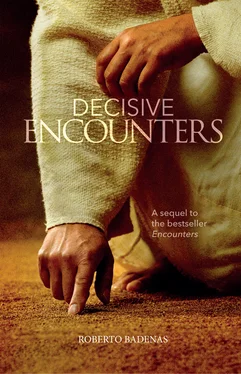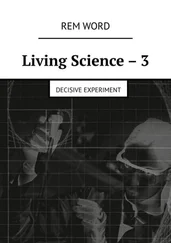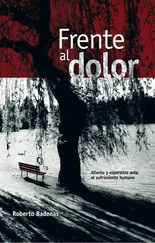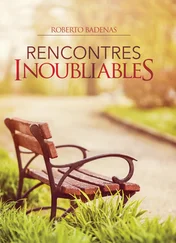And they will follow Him so closely that the members of His group will be known by their environment as “those of the Way.”43
1. John 1:43-44.
2. Augusto Cury, The Master of the Masters, Nashville: Thomas Nelson, 2008, p. 75.
3. “Jesus Christ said great things so simply, that it seems as though he had not thought them great: and yet so clearly that we easily see what he thought of them. This clearness, joined to this simplicity, is wonderful.” (Blaise Pascal, Thoughts, no. 797, Madrid: Valdemar, 2001, p. 309)
4. Oscar Wilde, De profundis, Barcelona: Seix Barral, 1977, pp. 92-93.
5. Matthew 23:13; cf. Luke 11:52.
6. John 1:40-51, Bethsaida means “house of fishing.” There are at least two places that claim that name, both along Lake Genesareth.
7. John and James, sons of Zebedee, must have been quite young at that time, considering that three years later their mother was still trying to find them work (Matt. 20:20). The fact that John effortlessly leans on Jesus in the last supper, is better understood as a juvenile gesture of trust (John 13:23-26) rather than a calculated stance of an adult, which could have other connotations. The fact that this same disciple, near the year 100 is still serving, is fully understood if he was about ten years younger than Jesus.
8. John 1:40-51.
9. Dietrich Bonhoeffer: The Cost of Discipleship. The Following, Salamanca: Sígueme, 2004, p. 235.
10. Text based on John 1:43-51.
11. “Philip knew that his friend was searching the prophecies, and while Nathanael was praying under a fig tree, Philip discovered his refuge. They had often prayed together in this secluded spot, hidden by the foliage.” (Ellen G. White, The Desire of Ages, pp. 83)
12. “Their uncouth pronunciation of Aramaic, the common language of the time, caused them to be held up to ridicule [. . .]. The Nazarenes were contemptuously called by the old equivalent to our “dung,” am-ha-arets, men of the land, farmworkers.” (R. Aron, The Hidden Years of Jesus, Bilbao: Ediciones EGA, 1991, pp. 43-44)
13. John 7:52.
14. The questions having to do with Jesus: ‘why does a believer hold that his salvation is in Jesus Christ?’ as well as other questions of the same nature: ‘and who do you say that I am?’ can only be answered personally [. . .] because the question and the answer are only possible if previously there has been a non-transferable experience: the experience of the encounter.” [Translated quote] (Martín Gelabert, Salvación como humanización, Madrid: Ediciones Paulinas, 1985, p. 13)
15. Ellen G. White, The Desire of Ages, p. 83, 84.
16. Ibíd., p. 116.
17. The episode of Jacob’s dream is told in Genesis 28:10-22.
18. Genesis 28:16, NKJV.
19. Emmanuel Carrère, The Kingdom, Barcelona: Anagrama, 2015, p. 61.
20. Jean Vanier, cited by Peter Van Breemen in The God Who Won’t Let Go, Indiana: Ave Maria Press, 2001, p. 98.
21. Idea adapted from Danilo Dolci’s, Everyone Grows Only if Dreamt About.
22. From the oldest of times to the Guinness era, our world extols champions.
23. This expression is well known among Latinists, and it comes from the Latin poet Horacio (who lived from 65 to 8 BC. It appears for the first time in his Odes, Book II, (Ode number 10 to Licinio).
24. In Spain, the term“ni-ni generation,” applies, since the first decade of 2000, to young people who neither study or work, and even more precisely to those who do not want to either study or work.
25. In the religious field, a lukewarm attitude is usually referred to as “the Church in Laodicea» (Rev. 3:14-22).
26. Dr. Augusto Cury talks about the wisdom of Jesus in this way: “There are two types of wisdom: and one is far superior to the other. The first type is measured by how much a person knows, but the second is gauged by the extent to which a person is conscious of how little he really knows.” True wise men are the most convict of their ignorance […]. Superior wisdom tolerates, inferior wisdom judges; superior wisdom relieves, inferior wisdom blames; superior wisdom forgives, inferior wisdom condemns. Inferior wisdom has diplomas, no one graduates in superior wisdom, there are no masters or doctors and everyone is an eternal apprentice.” (The Master of Love. Analysis of Christ’s Intelligence, Nashville: Grupo Nelson, 2008, p. 15)
27. Ellen G. White, Ministry of Healing, p. 51.
28. John 7:46.
29. Matthew 5:47-48.
30. “Jesus has taught something infinitely better than a sophisticated purification or a civic morality based on justice; he has sought to transform men in his likeness, according to the words of his announcer Ezekiel: ‘I will give them an undivided heart and put a new spirit in them; I will remove from them their heart of stone and give them a heart of flesh.’” (G. Papini, The Story of Christ, p. 326)
31. In the Hebrew tradition, manual labor is sacred: “He who works for a living is greater than he who shuts himself up in idle piety,” Because God already put man in the Garden of Eden“to work it and take care of it” (Gen. 2:15). And the work is so honorable, they go on to add, that: “an artisan at his work does not need to defer to the greatest of doctors.” Therefore, to name just a few of the most prestigious rabbis, Hillel was a woodcutter, Yehuda a baker, and Yohanan a cobbler. The first great Christian rabbi, Saul of Tarsus, was a tentmaker (Acts 18:3).
32. The word that our Bibles translate as “church” (ekklesia in Greek) means a gathering of people who have replied to an invitation (Matt. 16:18). “With the calling of John and Andrew and Simon, of Philip and Nathanael, began the foundation of the Christian church.” (Ellen G. White, The Desire of Ages, p. 86)
33. James 2:27.
34. Matthew 22:37-40.
35. cf. Enrique Rojas, Live your Life, Planeta: Temas de Hoy, 2013, p. 83.
36. Luke 8:1-3 states that there were many female disciples; it mentions by name Mary Magdalene, Susanna and Joanna, the wife of Chuza, the manager of Herod’ household.
37. Ellen G. White, Christ’s Object Lessons, p. 79.
38. cf. Philippians 4:11.
39. Philippians 4:13.
40. Dionisio Byler, Jesus and Nonviolence, Terrassa: Clie, 1993, p. 48.
41. Augusto Cury asserts: “If the political, social and educational worlds had minimally experienced what Christ experienced and taught, our miseries would have been eradicated, and we would have been a happier species.” (The Master of Masters, 2008, Thomas Nelson, pp. 189-190)
42. “As the flower turns to the sun, that the bright beams may aid in perfecting its beauty and symmetry, so should we turn to the Sun of Righteousness, that heaven’s light may shine upon us, that our character may be developed into the likeness of Christ.” (Ellen G. White, Steps to Christ, p. 69)
43. Acts 9:2; 19:9, 23; 22:4; 24:14, 22.
3
The Call
The lake shines under the morning sun, dazzled by the white hamlet of the fishing town and the luminous sand of the beach. Its blue reflection is slightly broken by the breeze, which scatters a flight of seagulls over the still of the waters.1
Leaning against his boat, in the elusive shade of the sails, a young fisherman prepares his nets, while keeping watch over, on a rustic reed bed, a string of fish set out to dry.2
Repairing knots is not a pleasant task, and least of all after an evening of a fruitless catch.
With a tired gesture, Simon drops the old net on the sand and swipes the back of his arm across his forehead, pushing his wet curls back. His exposed back, weather-beaten by the elements, shudders for an instant, beaded with sweat.
Always the same, every day: in the evening, fishing; in the morning, to the market; then, to repair the nets; and much later, to try to sleep . . . to start again by nightfall. And like so, day after day, always the same. As if his life were trapped in nets even more tangled than those in his hands.
Читать дальше












